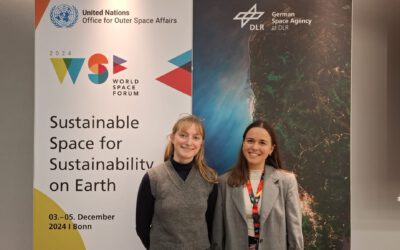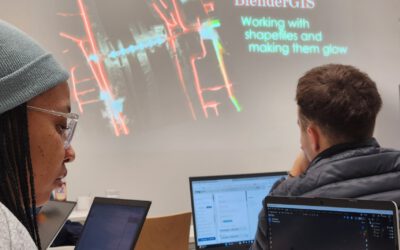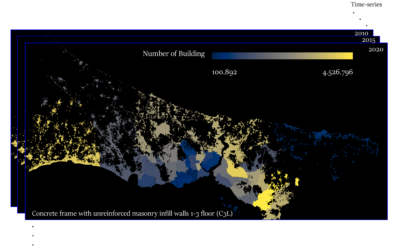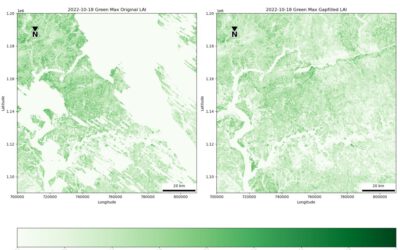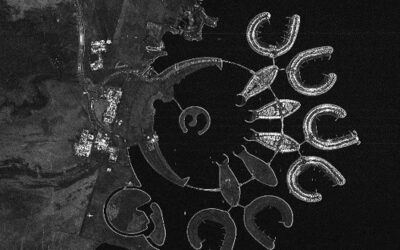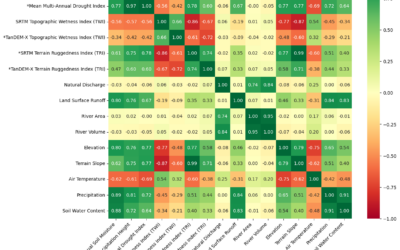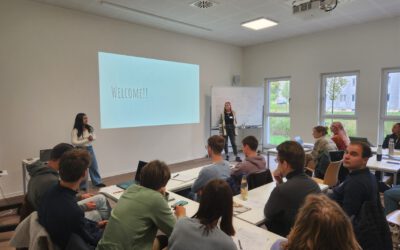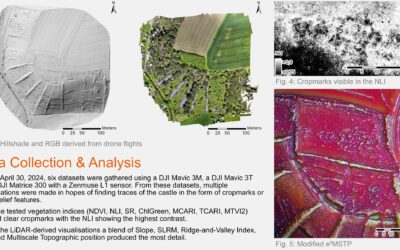Aim:
Within this course different methods to analyse point pattern statistically and conduct a spatial prediction are covered. Students will learn how to design such analysis, how to avoid caveats, troubleshoot errors and interpret the results.
Content
Different statistical methods will be applied for analysing spatial point patterns, such as vegetation samples or biodiversity related information. These results will be statistically predicted using methods such as GLM, GAM, Random Forest or MaxEnt. Implications of spatial point patterns as well as chosen environmental parameters will be discussed. All methods will be practically applied during the course using the programming language R. The needed pre-requisites are covered in the course “Applied Programming for Remote Sensing and GIS“.
Coding
Software
Techniques
Content
General Course News and Updates
EAGLES rock(et) the World Space Forum 2024
Laura - 8th gen EAGLE and in the last week of her internship at UN-SPIDER - and Sunniva - 7th gen EAGLE and working as a student assistant at the DLR's space agency - together happen to help organize the World Space Forum (WSF) 2024 in Bonn. Surrounded by...
EAGLE internship at CIAT in Colombia
Leonie, an 8th generation EAGLE, is currently doing her internship at CIAT (International Center of Tropical Agriculture) in South America, Colombia. She is part of the Multifuncional Landscapes group, which investigates about soil organic carbon sequestration in...
Blender GIS introduction
Within out EAGLE Earth Observation M.Sc. we also cover software applications which might not be used on a regular basis within our field of research but are sometimes highly useful to display our spatial data in a visually appealing way - and also potentially provides...
EAGLE presentation by Gökçe Yağmur Budak
On November 26, 2024, Gökçe Yağmur Budak will present her internship results on " Leveraging Data-Driven Approaches for Seismic Risk Assessment in Istanbul " at 12:30 in seminar room 3, John-Skilton-Str. 4a. From the abstract: This internship aims to create time...
Internship presentation by Jean de Dieu Tuyizere: Mapping leaf area index in Ghana and Senegal using Gaussian process regression and Sentinel-2 Imagery
On November 26, 2024, Jean de Dieu Tuyizere will present his internship results on " Mapping leaf area index in Ghana and Senegal using Gaussian process regression and Sentinel-2 Imagery" at 12:00 in seminar room 3, John-Skilton-Str. 4a. From the abstract: This study...
social bouldering event
Last Friday did we organize again a social event for all staff members and EAGLEs to get to know the new students, meet and chat with old students and just have a nice time outside the office for all staff members. We spend 4 hours together in the Rock In boulder gym...
Innolab presentation: Deep Learning-driven Image Super-Resolution for TerraSAR-X
On November 05, 2024, Jannik Hoffmann will present his InnoLab results on " Deep Learning-driven Image Super-Resolution for TerraSAR-X" at 12:00 in seminar room 3, John-Skilton-Str. 4a. From the abstract: High-resolution satellite Synthetic Aperture Radar (SAR) data...
Master Defense: Discovering Hydrographic Parameters of HydroSHEDS and TanDEM-X Digital Elevation Model through Exploratory Data Analysis” at 12:00 seminar room 3, John-Skilton-Str. 4a.
On October 29, 2024 Subarno Shankar will present his master thesis " Discovering Hydrographic Parameters of HydroSHEDS and TanDEM-X Digital Elevation Model through Exploratory Data Analysis" at 12:00 seminar room 3, John-Skilton-Str. 4a. From the abstract: Climate...
Welcome of new EAGLEs
The EAGLEs from the last generation welcomed our new earth observation students to the EAGLE M.Sc. program and gave them a glimpse of their last 12 months - from coding to socialising, pub crawls to joint hikes and also a lot of best wishes from all the other EAGLEs...
Research by Jannis Midasch presented at Archaelogy conference
Our EAGLE student Jannis Midasch presented his work on "Rediscovering a lost medieval castle using GIS and UAS-based remote sensing" at the Annual Meeting of the Aerial Archaelogy Research Group in York, UK this September. Jannis used various UAS/drone based...

